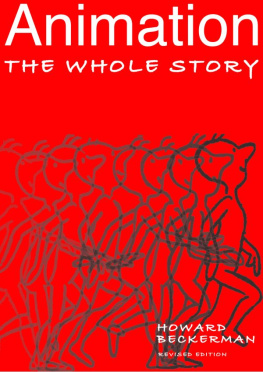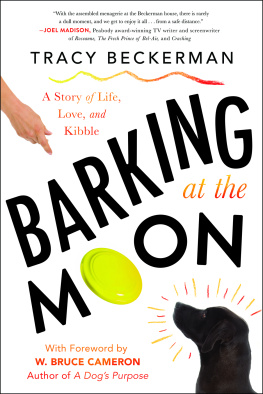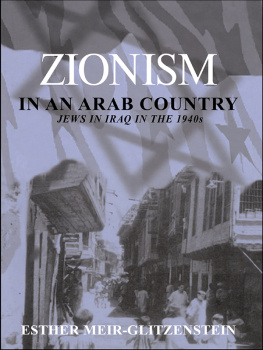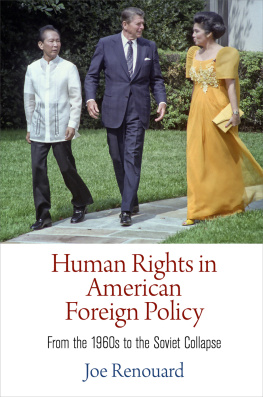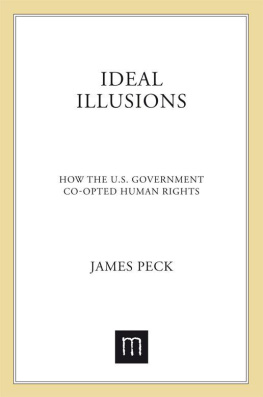HOUGHTON MIFFLIN HARCOURT
2010 BOSTON NEW YORK
Copyright 2010 by Gal Beckerman
ALL RIGHTS RESERVED
For information about permission to reproduce selections from this book,
write to Permissions, Houghton Mifflin Harcourt Publishing Company,
215 Park Avenue South, New York, New York 10003.
www.hmhbooks.com
Library of Congress Cataloging-in-Publication Data
Beckerman, Gal.
When they come for us we'll be gone : the epic struggle to save Soviet Jewry /
Gal Beckerman.
p. cm.
Includes bibliographical references and index.
ISBN 978-0-618-57309-7
1. JewsSoviet UnionHistory20th century. 2. JewsSoviet Union
Social conditions20th century. 3. JewsSoviet UnionPersecutionsHistory
20th century. 4. JewsSoviet UnionPolitics and government20th century.
5. Refuseniks. 6. Soviet UnionEmigration and immigrationGovernment
policy. 7. Soviet UnionEthnic relations. I. Title.
DS 134.85. B 43 2010
305.892'404709045dc22 2010005735
Book design by Brian Moore
Printed in the United States of America
DOC 1 2 3 4 5 6 7 8 9 10
The author is grateful for permission to quote from the following:
Anna Akhmatova, excerpt from "Epilogue II" from "Requiem," in Complete Poems of Anna
Akhmatova, translated by Judith Hemschemeyer. Reprinted with the permission of Zephyr
Press, www.zephyrpress.org.
"There's a Fire Burning," from Songs of Hope for Russian Jews, music by Moshe Denberg,
words by George Weisz. Reprinted by permission of the Archives of Jacob Birnbaum.
Excerpt from "I'm not asking death for immortality..." by Joseph Brodsky, from An
Anthology of Jewish-Russian Literature: Two Centuries of Jewish Identity in Prose and Poetry,
18012001, edited by Maxim D. Shrayer, vol. 2 (Armonk, NY, and London: M. E. Sharpe, 2007),
p. 672. Translated from the Russian by Joanna Trzeciak. Translation copyright by Joanna
Trzeciak. Reproduced by permission of the translator, publisher, and editor.
"Leaving Mother Russia," words and music by Robbie Solomon, 1978.
Excerpts from The Jews of Silence by Elie Wiesel. Copyright 1973, 1987 by Elie Wiesel.
Reprinted by permission of Georges Borchardt, Inc., on behalf of the author.
"Babii Yar," translated by George Reavey, copyright 1960, 1967 by George Reavey, "Bombs
for Balalaikas," translated by Stanley Kunitz with Albert Todd, copyright 1962, 1963, 1965,
1967, 1972 by E. P. Dutton, from Yevtushenko's Reader by Yevgeny Yevtushenko, Used by permis
sion of Dutton, a division of Penguin Group (USA) Inc.
FOR MY PARENTS,
Ami and Batia
Contents
Prologue
Part I: After the Thaw, 19631970
1. Beneath the Earth, 19631966
2. "Failure May Have Become Our Habit," 19631964
3. A Circumcision at the Dacha, 19661969
4. The Overall Orchestra, 19651969
5. "Escape, Daughter of Zion Dwelling in Babylon," 19691970
Part II: Their Own Dtente, 19701980
6. Outrageous Things, 19701972
7. Birth of the Refusenik, 19701972
8. Linkage, 19721975
9. Politiki and Kulturniki, 19751977
10. The Shaming, 19771978
11. Trial and Exile, 19771980
Part III: Slouching Towards Glasnost, 19811987
12. Hopelessness, 19811984
13. Pawns Again, 19851986
14. "Mr. Gorbachev, Let These People Go!" 19861987
Afterword: Hundreds of Thousands, 19881991
Acknowledgments
Notes
Sources and Further Reading
Index
And if ever in this country
They decide to erect a monument to me,
I consent to that honor
Under these conditionsthat it stand
Neither by the sea, where I was born:
My last tie with the sea is broken,
Nor in the tsar's garden, near the cherished pine stump,
Where an inconsolable shade looks for me.
But here, where I stood for three hundred hours,
And where they never unbolted the doors for me.
ANNA AKHMATOVA, "Requiem"
If we blow into the narrow end of the shofar, we will be heard
far. But if we choose to be Mankind rather than Jewish and
blow into the wider part, we will not be heard at all; for us
America will have been in vain.
CYNTHIA OZICK, Art and Ardor
Prologue
L IKE MOST AMERICAN Jews of my generation, I had a twin in the Soviet Union. Maxim Yankelevich. I doubt I'll ever forget that name. I repeated it incessantly in the nervous weeks leading up to my bar mitzvah. Some organization of which I was barely aware had handed down Maxim's information, and my job was to invoke him and what I was told was his "plight" after I read from the Toraha rite of passage that filled me with such dread I wasn't sure I'd remember my own name, let alone this other boy's. So I compulsively chanted to myself "Maxim Yankelevich." It calmed me down.
The only real information I had about Maxim was on a sheet of mimeographed paper that the rabbi had given me. Maxim's father, Zelman, was a construction engineer. His mother, Elena, was a cosmetician. The family had first applied for permission to leave the Soviet Union in 1980, when Maxim was five. Now it was 1989 and they were still living in Leningrad. His bar mitzvah was supposed to have taken place the year before but hadn't, or couldn't, for reasons unexplained (my imagination, populated by KGB agents in khaki trench coats shooting bullets from their shoes, filled in many of the particulars). By mentioning him, I was told, I was symbolically allowing him to share my bar mitzvah. What I fixated on most was the small photo of Maxim's father. It was a grainy black-and-white, but one could see the silhouetted outline of a man wearing a cap, scarf, and thick-framed glasses. He looked like a father from another century, a shtetl father, and I pictured him, the construction engineer, carefully laying bricks day after day. Besides the photo there were only a few lines of text and just one sentence to give me a sense of the plight that necessitated my intervention. Maxim had grown up, I was informed, in "an atmosphere of tension and uncertainty."
My rabbi was a sensitive and thoughtful man but he must have matched young boys and girls with thousands of these Soviet twins by the late 1980s and he didn't take the time to explain further. In the days leading up to my Torah reading, while I tried on my new gray suit and red clip-on tie a dozen times in front of the mirror, Maxim Yankelevich took up residence in my overactive brain. I imagined what he looked like: taller than me, blond, without braces, carrying his schoolbooks with an old-fashioned book strap. The fact of his existence though, somewhere far off to the east, thoroughly confused me. These were the last years of the Cold War. I was aware of the "evil empire," if only through the detritus of pop culture, which seemed obsessed with the Soviet-American relationship. For some reason, I was fascinated by the truly awful 1985 film White Nights. It starred Mikhail Baryshnikov as a Russian ballet dancer who had defected from the Soviet Union but found himselfthrough the deus ex machina of a plane crashtrapped once again in the country he had fled. In one scene, the Baryshnikov character lustily dances to the music of the banned raspy-voiced folksinger Vladimir Vysotsky on the stage of the empty Mariinsky Theater while his old girlfriend watches and weeps, knowing that if he had stayed in the Soviet Union he would never have been permitted to express himself with such abandon. Some variety of repression was hidden there behind the constantly invoked iron curtain. Of that, I couldn't help being at least somewhat aware. But still, when I read about Maxim, the notion that he or any other Jew lived in "an atmosphere of tension and uncertainty" was hard to fathom.
Next page

